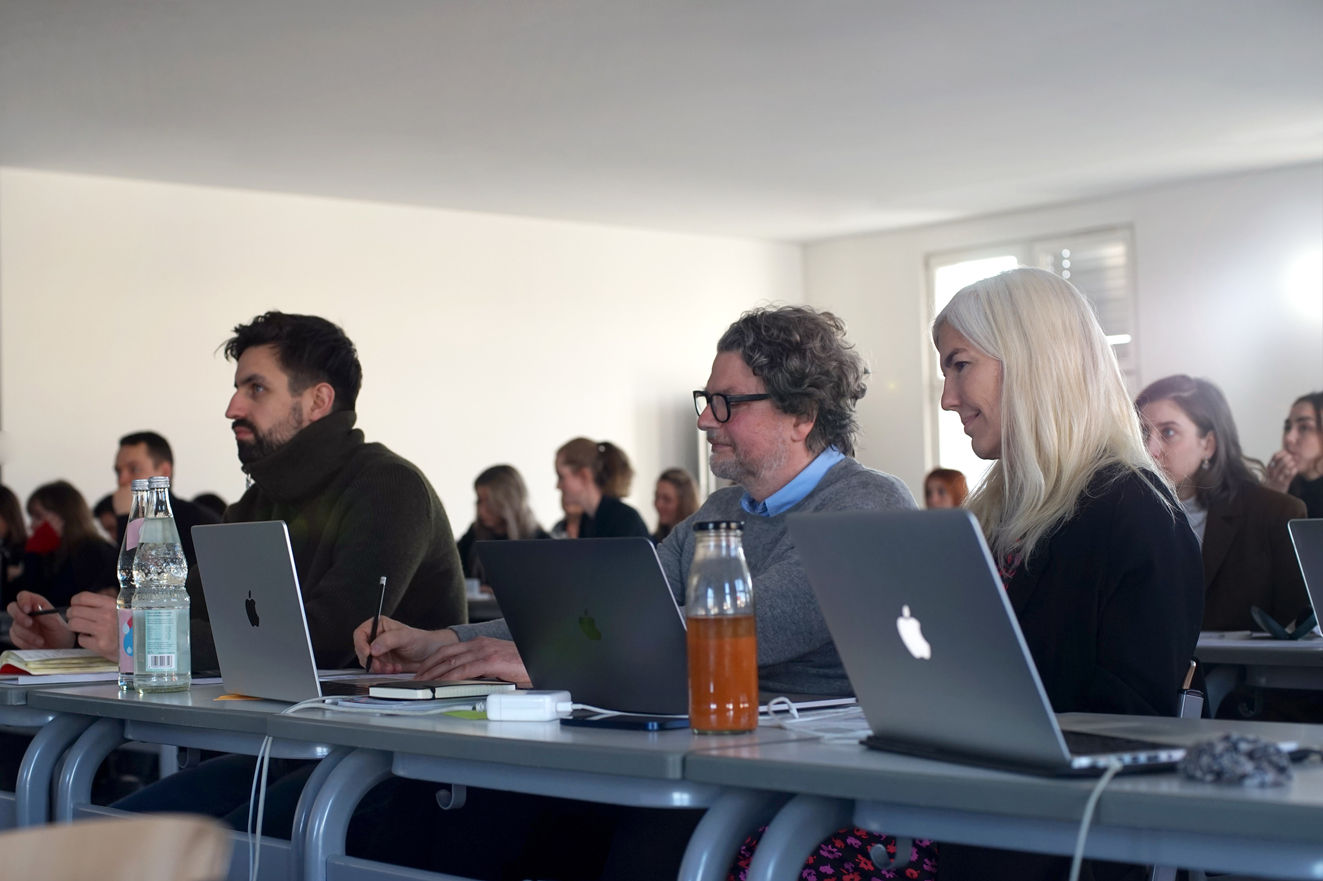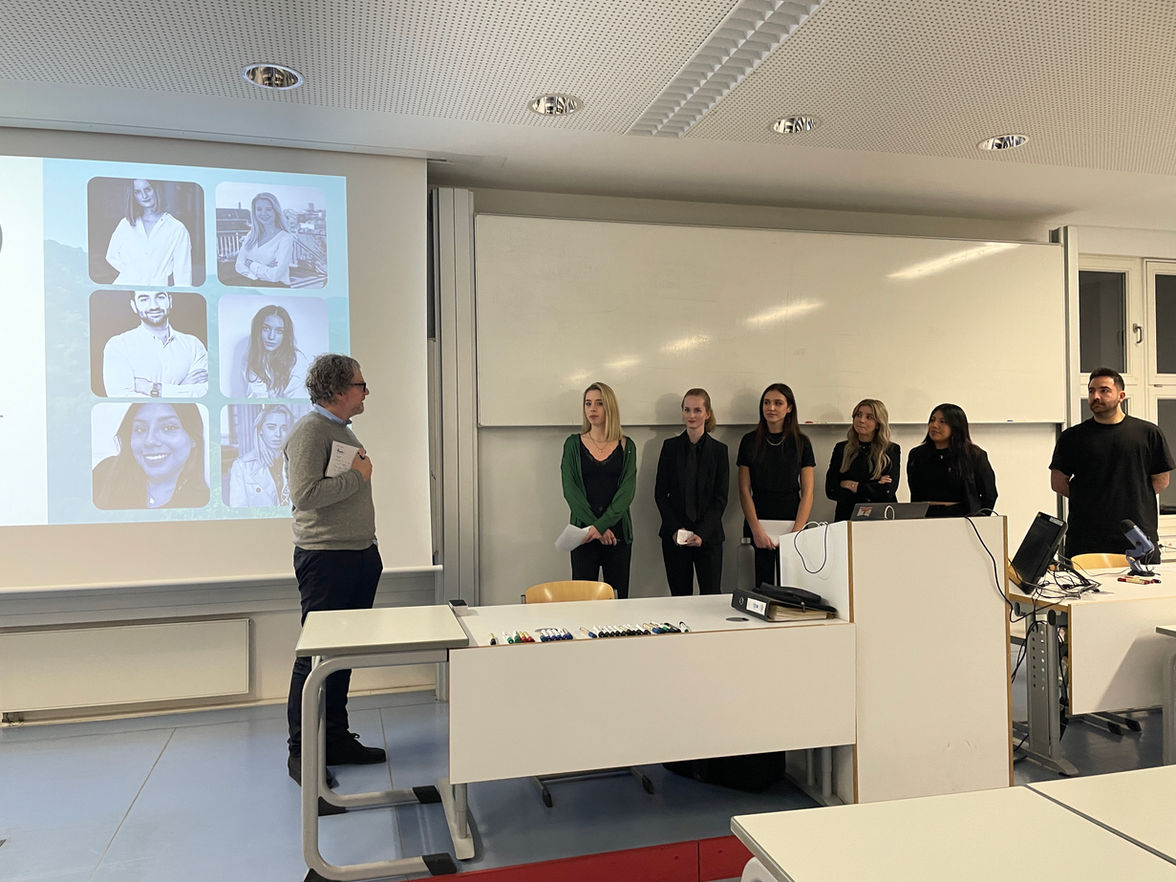
University collaborations
Our team coaches, moderates, and supports students and companies on their journey to valuable insights into sustainable consumption behavior and innovative communication strategies.
With our hackathons, we enable companies and brands to leverage the creative knowledge environment for their benefit and gain insights into various areas. And last but not least, through these projects, Protopia gains new insights for the open-source platform for behavioral research. Because we want to make this knowledge accessible to everyone – especially smaller brands and impact brands – in order to accelerate the transition to regenerative consumption.

.png)
University
School of Economics and Law Berlin (HWR)
Professor
Prof. Dr. Dirk-Mario Boltz
Study Program
Master o.A. International Marketing Management
Protopia Challenge
Cultural Hacks for Regenerative Consumerism
Collaborations
Tomorrowbank, Unown, Alpakas, Camping Lodge, Fairfood Freiburg, Re:Do, Hinterland
What was it all about?
In our joint project "Cultural Hacks for Regenerative Consumerism" with students from HWR Berlin and Prof. Dr. Dirk-Mario Boltz, we looked at the following consumption situations:
What is consumed where, how, and when? Where are the barriers to changing the behavior of consumers towards a regenerative consumption culture? What do usage situations and usage processes look like in different consumption contexts?
Seven master teams from the Berlin School of Economics and Law were tasked within this project to test the "Cultural Hacking" method to identify opportunities for regenerative consumption behavior in different contexts. Accordingly, seven Social Impact Brands formulated their current challenges around the topic of "Say-Do Gap" for the master teams, for which they were then supposed to develop hacks and intervention strategies. Below is an overview of the participating companies and their challenges:
How can we raise awareness about the difference between sustainable banking and “normal” banking?
How can we raise awareness about the difference between sustainable banking and “normal” banking?

How can we reframe our target group's value of clothing? How can we challenge the targets group’s assumptions about ownership?

Why do customers not order groceries from zero-waste online shops if they have the financial means to do so?
How can we help campers to overcome their habitual purchase behavior and get them to use the regional and sustainable products the campsite shops have to offer?

How can we enhance the consumer’s understanding of the importance of “Fair Trade” for nuts and increase the “warm glow” effect when purchasing fair trade nuts?

How can we convince clients (companies) that Re:Do is a trustworthy partner offering high-quality ideas with great benefits for their business?
How can we overcome the lack of connection to the production location of Hinterland to develop brand loyalty and increase the re-purchase rate?
Quotes from Prof. Dr. Dirk-Mario Boltz
Why did you choose Protopia?
"Protopia pursues the idea of inviting people to collectively explore new paths towards more sustainable consumer behavior. This topic holds great relevance for me as a researcher and teacher in marketing communication. So far, our main focus has been on consumer behavior, aiming to stimulate consumption. We have amassed considerable knowledge in our discipline about how people think, feel, and act, with the intention of influencing their decisions for products, services, or ideas. However, we can no longer overlook the negative consequences of our consumer behavior – from food waste to the extremely poor working conditions in the fast-fashion industry, to plastic pollution from packaging, to name just a few examples.
Hence, the question arises: Why shouldn't we utilize our knowledge about consumer behavior to shift our consumption towards a more sustainable, regenerative consumer culture? The same question drives Protopia, which made a collaboration seem like a natural fit."
How would you describe the collaboration between the master teams and Protopia or the students and brands?
"In collaboration with practical partners, students experience a reality check: What are the peculiarities in certain markets? What criteria do market participants base their actions on? The students then also got to feel the pressure that startups and social impact companies in particular are under. As a result, a planned presentation might need to be postponed, or a project goal changed at short notice. The involved brands then realized that master's students can conduct very professional research and concept development, leading them to even consider the implementation of project ideas."
How satisfied were you with the results of the students, and in your opinion, what could they learn from Protopia?
"The motivation of the students and the professionalism of their work were above average. This was certainly also due to Protopia's appreciative and motivating approach of involving seven companies in the project that pursue sustainable business ideas. As a result, the teams had specific contacts and important tasks, as the aim was always to bridge the gap between "saying" and "doing".
With Protopia's idea of "hacks" and the "Behavioral Intervention Canvas" tool, we were also able to try out a new approach to promote sustainable consumer behavior in different areas."
Would you like to continue working with Protopia in the future?
"Without exploring a regenerative consumer culture, there is no future for marketing. Protopia is an exciting platform where different actors meet and exchange ideas. As a researcher and educator, I am happy to continue being part of this with my students."
Prof. Dr. Dirk-Mario Boltz
is a professor of marketing communication at the Berlin School of Economics and Law. Together with Volker Trommsdorff, he is the author of the textbook "Consumer Behavior", which in its current edition includes a chapter on "Buying without Benefit", addressing the topic of "waste".

The results
In a joint final workshop, the students presented their research findings and solution ideas to the attending entrepreneurs and the Protopia team. The feedback was truly impressive. The entrepreneurs were thrilled with the practical applicability and the new perspectives that the students contributed to addressing the challenges. Some of the brands are currently in the process of implementing initial approaches in practice and are in contact with the students for the continuous development of their concepts.
If you would like to learn more about our university projects or want to participate in the next hackathon, please feel free to contact mail@protopia.de



.png)




